Is Bai Healthy? 7 Things You Need to Know
In the modern world where health-conscious choices dictate our dietary preferences, Bai drinks have emerged as a beacon for those seeking flavorful alternatives to sugary beverages. With their low-calorie promise, vibrant flavors, and innovative use of natural sweeteners, Bai claims to deliver not just taste but a range of health benefits. This article delves into whether Bai drinks can rightly wear the crown of healthfulness, examining their nutritional profiles, unique ingredients, antioxidant benefits, and how they stack up against other drinks on the market. From individuals monitoring their sugar intake to those simply looking for a more satisfying way to hydrate, understanding Bai’s offerings is essential before making this drink a staple in your daily regimen. So, let’s explore the nuanced world of Bai beverages and discover what they bring to the table.
Nutritional Profile of Bai Drinks
When assessing whether Bai can be a healthy choice, one must first consider its nutritional profile. This examination reveals that while Bai drinks are enticing for their flavors, their underlying ingredients play a vital role in evaluating their overall health benefits. Bai provides low-calorie, low-sugar options, which are a stark contrast to traditional sugary drinks.

Key Nutritional Features:
- Calories: A typical Bai drink has about 10 calories per 16-ounce serving.
- Sugar Content: Bai drinks contain just 1-2 grams of sugar, primarily sourced from natural fruit extracts and sweetened with erythritol and stevia.
- Vitamin C: Each serving provides 20% of your daily recommended value of Vitamin C.
In a society grappling with increasing obesity and metabolic disorders, Bai’s ability to offer low-calorie alternatives is notable. By incorporating diverse flavors, Bai helps enhance hydration without leaving consumers guilty about excessive caloric intake. With such a profile, it sets itself apart from its sugary competitors, paving the way for better dietary choices.
Caloric and Sugar Content
When it comes to calories and sugar, the comparisons between Bai and traditional soft drinks read like a night-and-day scenario. Bai’s commitment to low sugar is compelling, particularly as consumers become increasingly aware of the adverse health impacts associated with high sugar consumption.
Nutritional Comparison Chart:
| Beverage | Calories (per 16 oz) | Sugar (per serving) |
|---|---|---|
| Bai Antioxidant Infusion | 10 | 2 grams |
| Bai Coconut Water | 60 | Low Natural Sugars |
| Traditional Soft Drink | 150+ | 39 grams |
Bai drinks allow consumers to indulge in a flavor-packed experience without the burden of added sugars. Understanding these differences empowers individuals to make thoughtful decisions about their beverage choices, ultimately encouraging healthier lifestyles.
Ingredients That Make Bai Unique
Beyond its favorable caloric and sugar content, Bai’s uniqueness can be largely attributed to its distinct ingredients. The drinks incorporate a medley of natural extracts and sweeteners that not only enhance flavor but also purportedly offer health benefits.
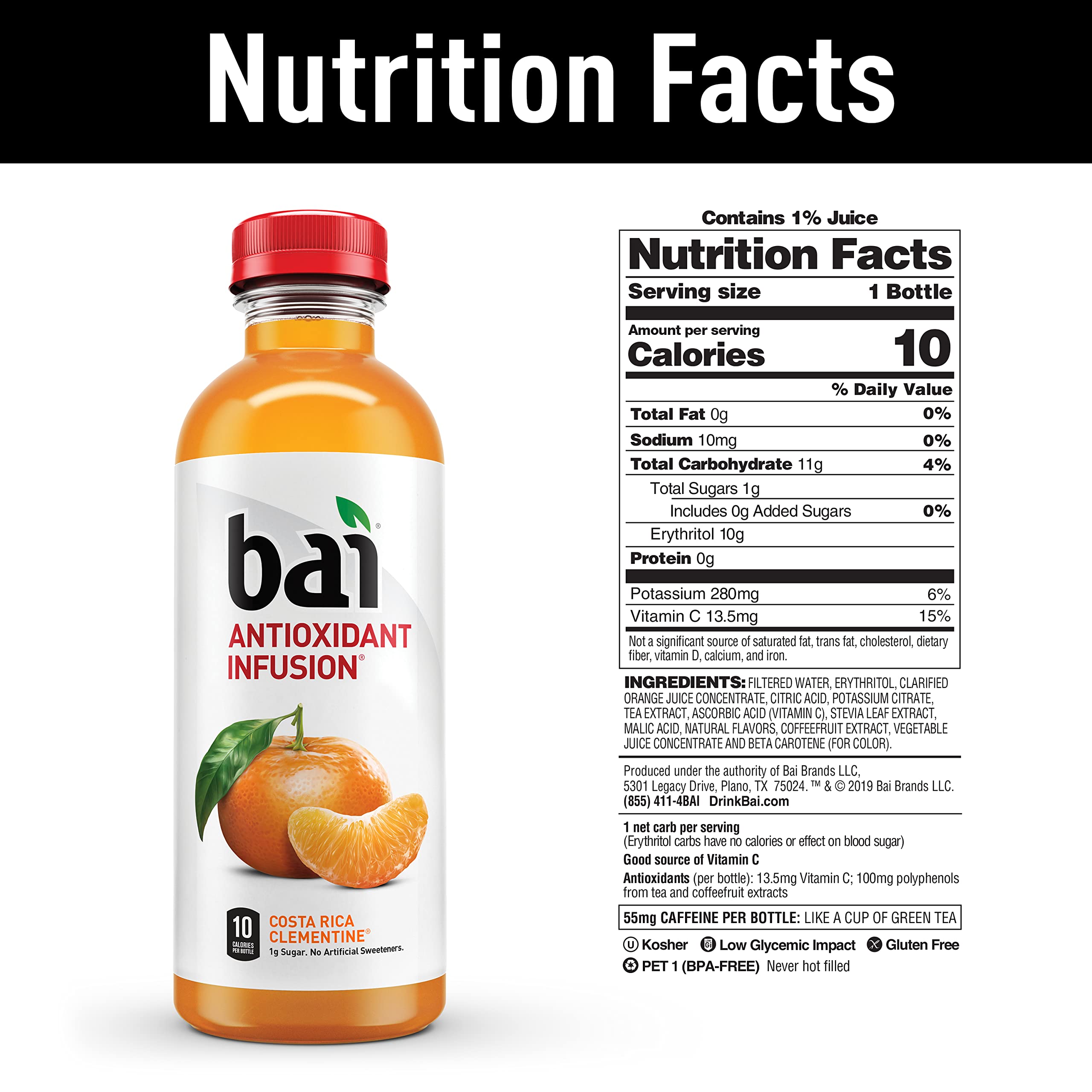
Core Ingredients:
- Erythritol: This natural sugar alcohol serves as a sweetener with zero calories.
- Stevia Leaf Extract: Known for its intense sweetness without calories, appealing for weight management.
- Coffee and Tea Extracts: Infused with antioxidants, these extracts provide additional health benefits.
These ingredients position Bai drinks as attractive options for consumers wishing to sidestep artificial ingredients commonly found in traditional sodas. Additionally, Bai beverages are gluten-free and vegan, making them suitable for diverse dietary preferences. Such versatility enhances the longevity of Bai in the rapidly evolving beverage landscape.
Antioxidant Benefits of Bai
A significant selling point of Bai drinks lies in their antioxidant properties, sourced from natural ingredients like coffee fruit and tea extracts. The inclusion of these components not only elevates flavor but also refines Bai’s health appeal.
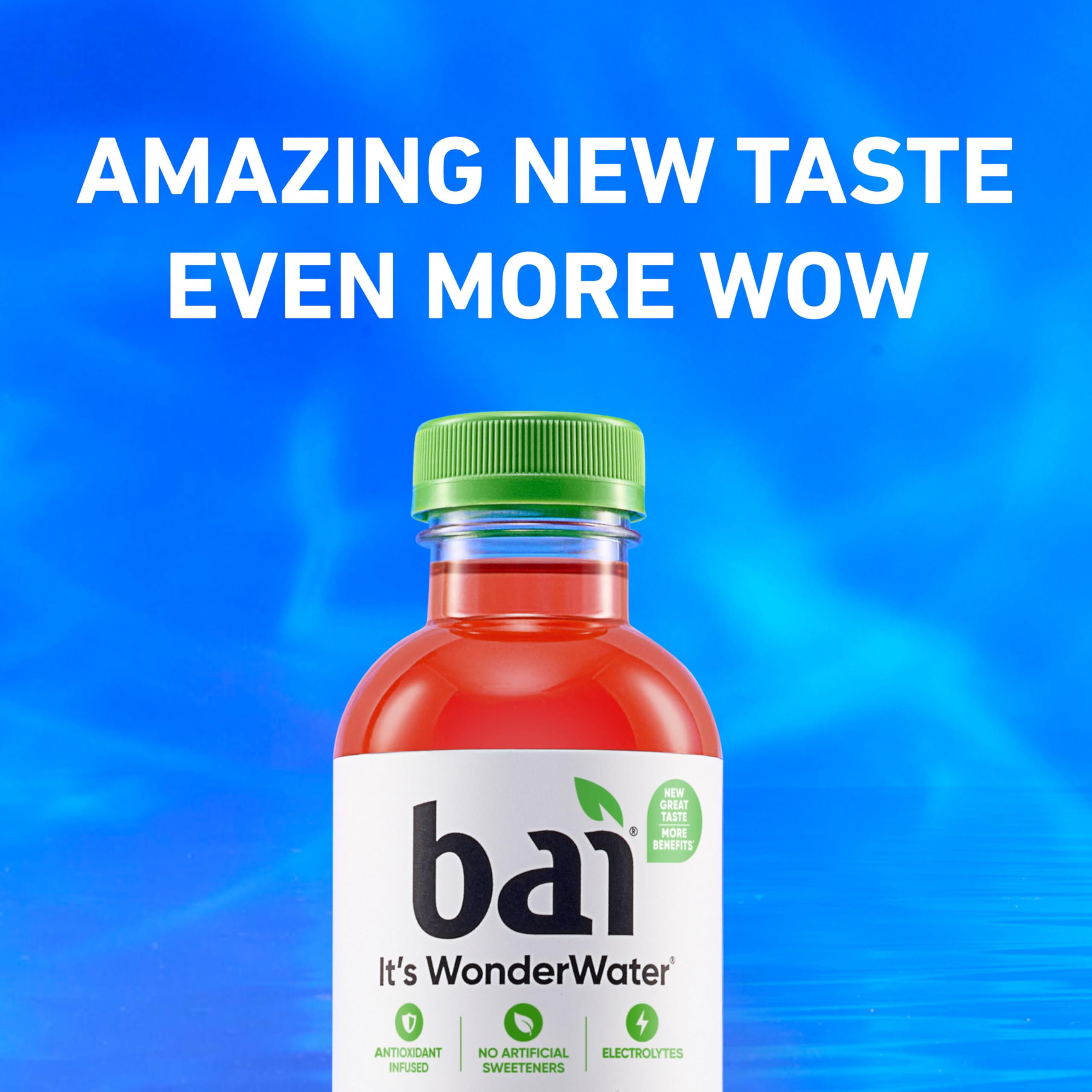
Antioxidants are essential in combating oxidative stress and preventing chronic diseases. Bai’s commitment to providing antioxidant-rich beverages aligns perfectly with current health trends focusing on disease prevention and overall wellness. In terms of selection, consumers might find themselves gravitating toward Bai not just for thirst-quenching, but also for its potential health benefits, making it a holistic choice.
Role of Coffee Fruit Extract
Coffee fruit extract stands out among the ingredients in Bai drinks, celebrated for its comprehensive health benefits. Research suggests that this extract is a treasure trove of antioxidants, contributing positively to overall wellbeing.
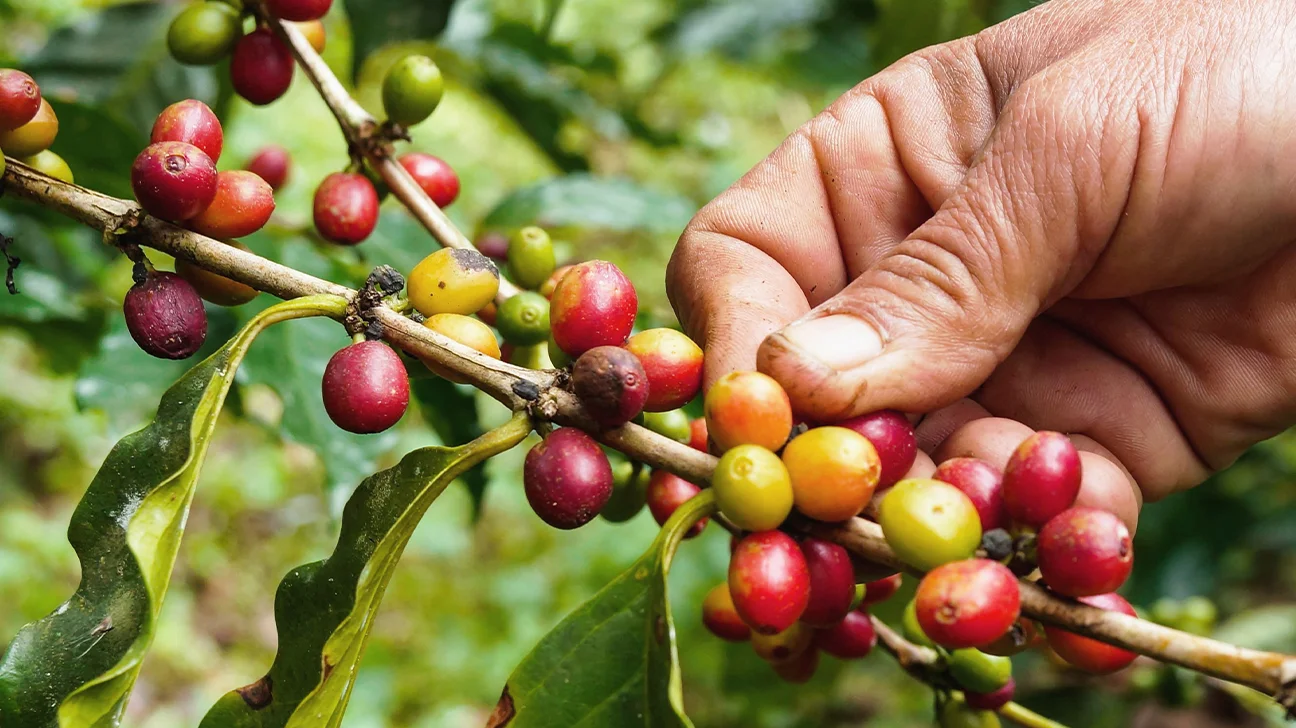
Notable Benefits:
- Antioxidant Activity: Reduces oxidative stress in the body, potentially lowering the risk of chronic conditions.
- Mental Health: Some studies indicate coffee fruit extract may enhance cognitive function, making it an exciting addition for those looking to boost brain health.
- Heart Health: Epidemiological studies link regular coffee consumption to lower risks for chronic diseases such as cardiovascular issues.
When evaluating Bai drinks, it’s crucial to recognize how the inclusion of coffee fruit extract transforms a simple beverage into a conduit for potential health enhancement serving not merely as hydration but as a functional drink packed with benefits.
Impact of White Tea Extract on Health
Alongside coffee fruit extract, Bai drinks also boast the health benefits of white tea extract. Known for its gentleness and rich source of antioxidants, white tea has a myriad of favorable effects on wellbeing.
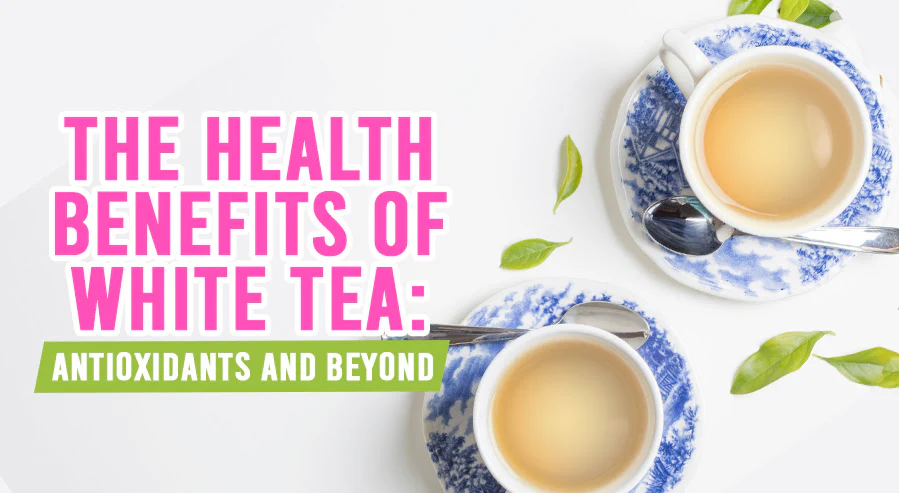
The inclusion of white tea extract in Bai not only provides flavor but also supports various health objectives:
- Weight Management: White tea may help augment fat oxidation processes, assisting those trying to manage their weight.
- Anti-inflammatory Properties: Its natural compounds may reduce inflammation and contribute to overall health.
- Skin Health: Particular antioxidants present in white tea help protect against skin DNA damage, supporting beauty from within.
Incorporating Bai into a daily routine is more than just quenching thirst; it’s a lifestyle choice that aligns with modern health objectives.
Comparison with Other Beverages
Examining Bai in the context of other beverages highlights its unique attributes and health benefits. The beverage landscape is increasingly saturated with options, making it imperative for consumers to choose wisely.
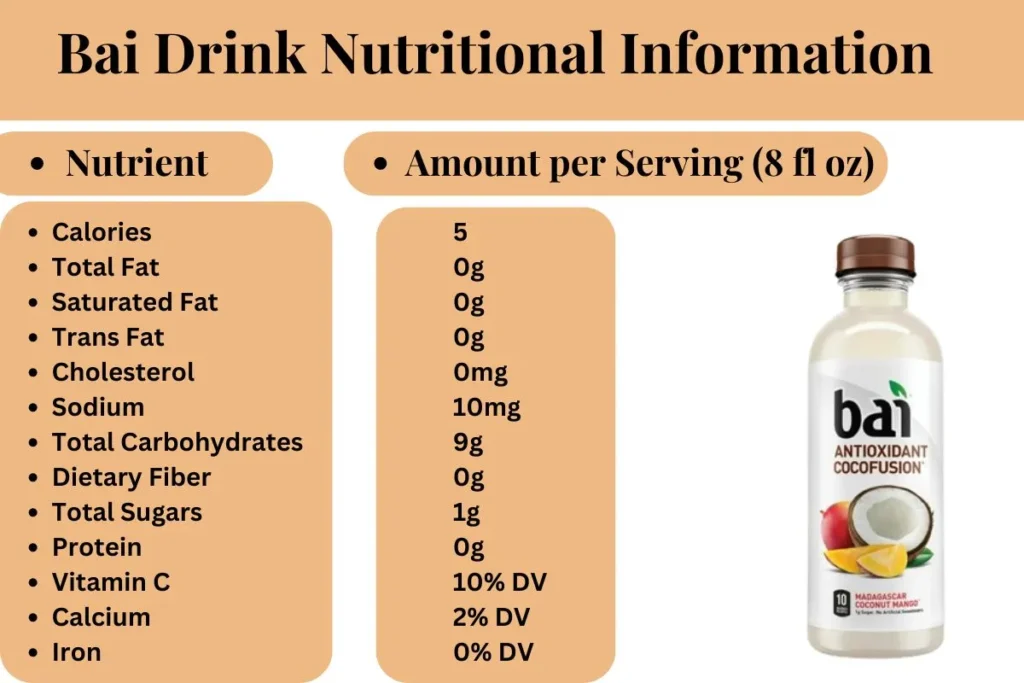
Bai stands as a favorable alternative not only against traditional soft drinks but also emerging beverages like energy drinks, as highlighted below:
Bai vs. Traditional Soft Drinks
Comparing Bai to conventional sodas reveals stark contrasts in both health and composition:
- Caloric Content: Bai typically ranges **from 10 to 60 calories as opposed to 150-200 calories often found in sugary sodas.
- Sugar Levels: Bai contains 1-2 grams of sugar while soft drinks can have 39 grams or more per serving.
This metric is critical for anyone aiming for better health without sacrificing taste.
Bai vs. Energy Drinks
When pitted against energy drinks, Bai shines for its:
- Lower Sugar Content: While energy drinks can exceed 50 grams of sugar, Bai keeps it between 1-2 grams.
- Healthy Ingredients: Bai’s natural sweeteners and added antioxidants stand in clear opposition to the high caffeine and sugar levels of traditional energy drinks.
The analysis firmly establishes Bai as a leading contender in favor of health.
Possible Side Effects of Consuming Bai
While Bai drinks present numerous advantages, understanding potential side effects is essential for any consumer.

Awareness of these effects can guide individuals in making informed choices:
- Gastrointestinal Distress: Some individuals may experience bloating or gas due to the sugar alcohol, erythritol, particularly when consumed in excess.
- Caffeine Sensitivity: The caffeine levels may provoke reactions in sensitive individuals, including jitteriness and sleep disturbances.
Maintaining an awareness of these possible side effects allows for balanced consumption and an overall healthier relationship with beverage options.
Sensitivity to Erythritol
Erythritol, a core ingredient in Bai for its sweetness without calories, is generally well-tolerated, but sensitivities can arise among certain individuals.
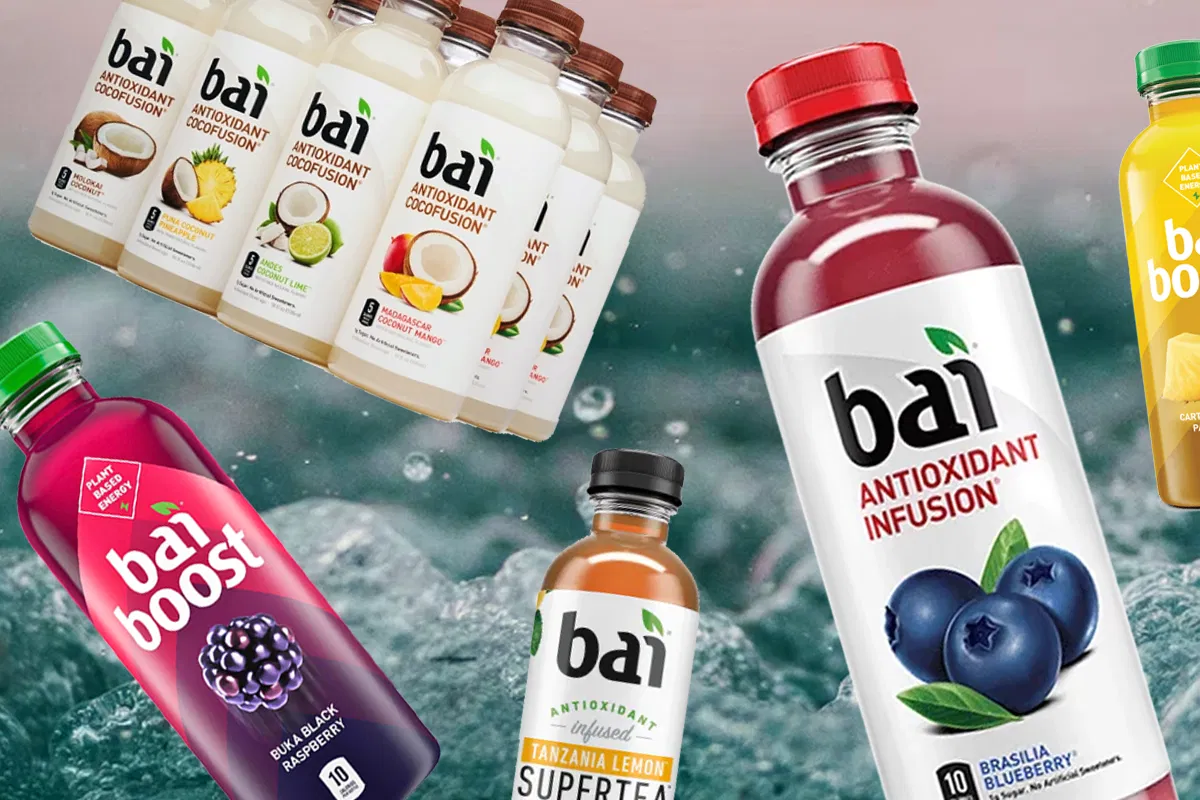
Potential Side Effects:
- Bloating and Gas: Some may find that erythritol causes digestive discomfort, particularly those with sensitive stomachs.
- Mild Laxative Effect: Consuming high amounts may lead to diarrhea for certain individuals.
Understanding personal reactions to erythritol can help consumers make appropriate choices about Bai consumption.
Caffeine Content and Its Effects
The caffeine content in Bai drinks plays a dual role, offering both benefits and potential drawbacks.

Insights on Caffeine:
- Caffeine Levels: Bai offers about 35-110 mg of caffeine per serving, lower than many coffee options but substantial compared to decaffeinated beverages.
- Positive Outcomes: Moderate caffeine consumption can enhance alertness and metabolic function, aiding daytime alertness.
However, awareness of one’s total caffeine consumption from all sources is crucial to avoid negative effects.
Bai as a Hydration Option
Bai drinks uniquely complement hydration strategies, providing not just flavor but also an infusion of health benefits in a convenient format.

In the quest for hydration, Bai can serve a dual purpose:
- Flavorful Alternatives: Bai enhances overall fluid intake without the downsides of sugary drinks, making hydration more appealing.
- Electrolyte Replenishment: When physical activity is high, certain Bai varieties feature added electrolytes, which support recovery and fluid balance.
Thus, Bai not only serves as a tasty option but contributes positively to maintaining hydration levels effectively.
Role of Bai in Daily Fluid Intake
Integrating Bai into your beverage strategy can enhance water intake, ensuring a balanced approach to hydration.
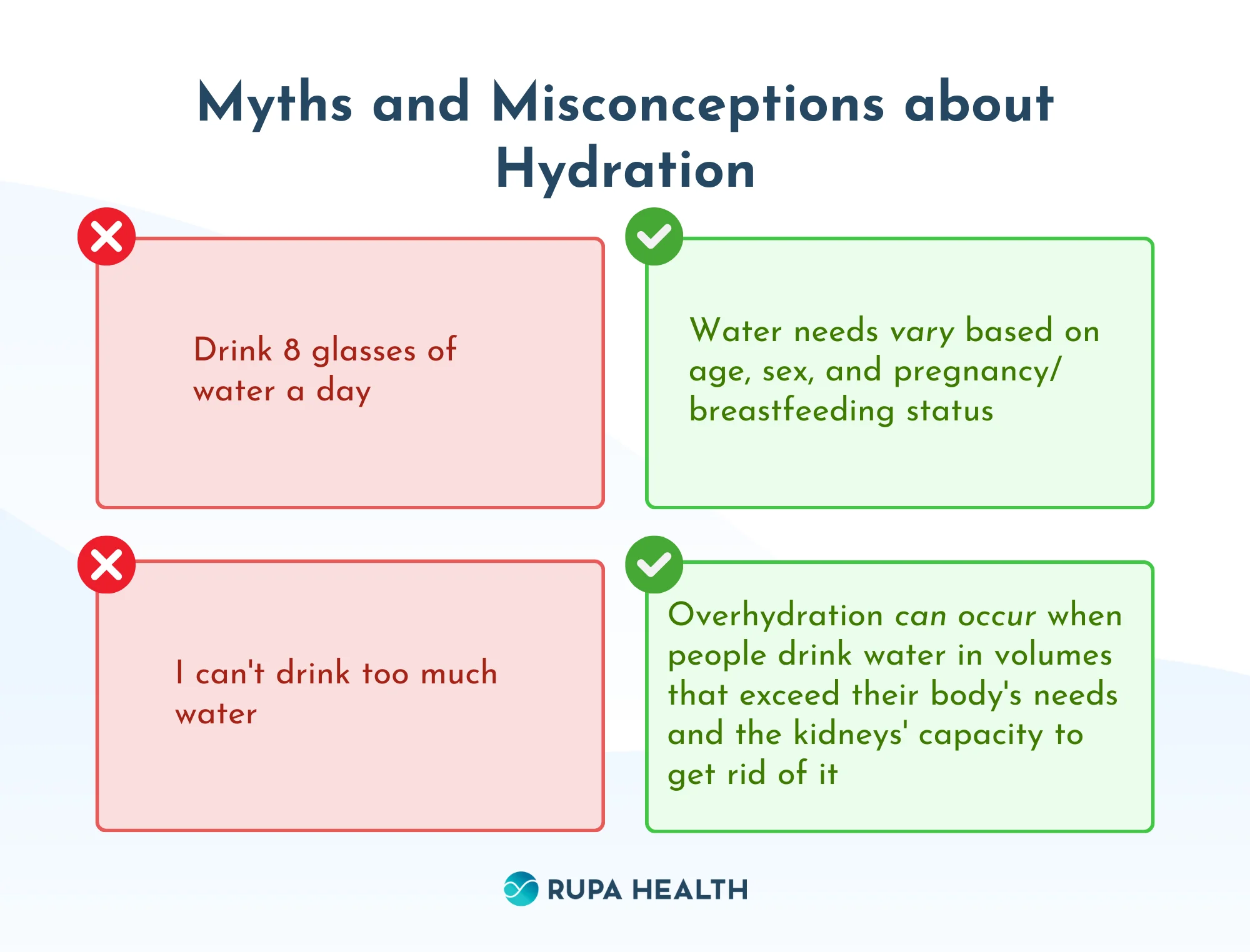
Tracking Hydration:
- Variety of Flavors: Bai’s array of flavors can intrigue those who may otherwise neglect adequate hydration.
- Hydration Conscience: Bai should complement water intake rather than replace it; while they provide tasty enhancements, nothing beats plain water’s hydration efficacy.
Bai can undoubtedly perk up the hydration game, introducing enjoyable elements to what can often be a mundane necessity.
Health Considerations for Specific Diets
Bai drinks cater to various dietary considerations, ensuring that health-conscious consumers can integrate them into their routines without issues.

Is Bai Suitable for Diabetics?
For individuals managing diabetes, Bai drinks appear to align well with dietary goals.
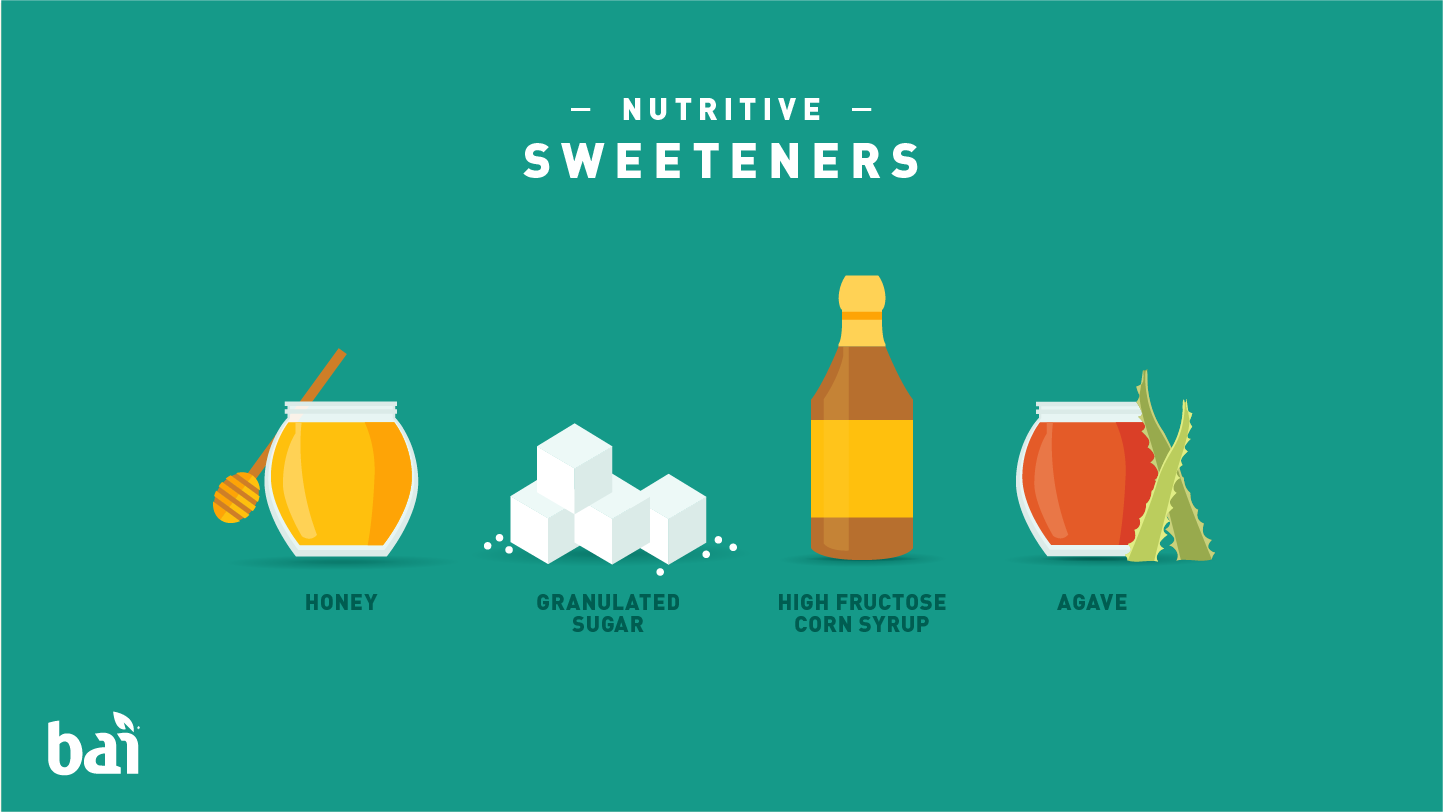
Diabetes-specific Benefits:
- Low Sugar Profile: With only 1-2 grams of sugar, Bai is a suitable alternative for those managing blood glucose levels.
- Natural Sweeteners: The incorporation of erythritol and stevia enables consumers to enjoy sweetness without raising insulin levels significantly.
Such attributes bolster Bai’s viability as a health-conscious choice for individuals working to manage diabetes effectively.
Bai’s Compatibility with Vegan Diets
Another positive aspect of Bai drinks stems from their compatibility with vegan lifestyles.

Vegan-friendly Highlights:
- No Animal Derivatives: Bai is formulated without any animal-derived ingredients, making it entirely plant-based.
- Hydration Without Compromise: As the drinks are both hydrating and flavorful, they resonate well within the ideals of vegan living.
maintaining diversity within one’s diet can often be challenging, but Bai offers an alluring option that aligns seamlessly with vegan principles.
Summary of Bai’s Health Implications
As we conclude our exploration of Bai drinks and their health implications, it becomes clear that they have much to offer a health-conscious audience.

Should You Replace Other Drinks with Bai?
While Bai presents numerous health benefits, one must approach the question of replacement carefully.
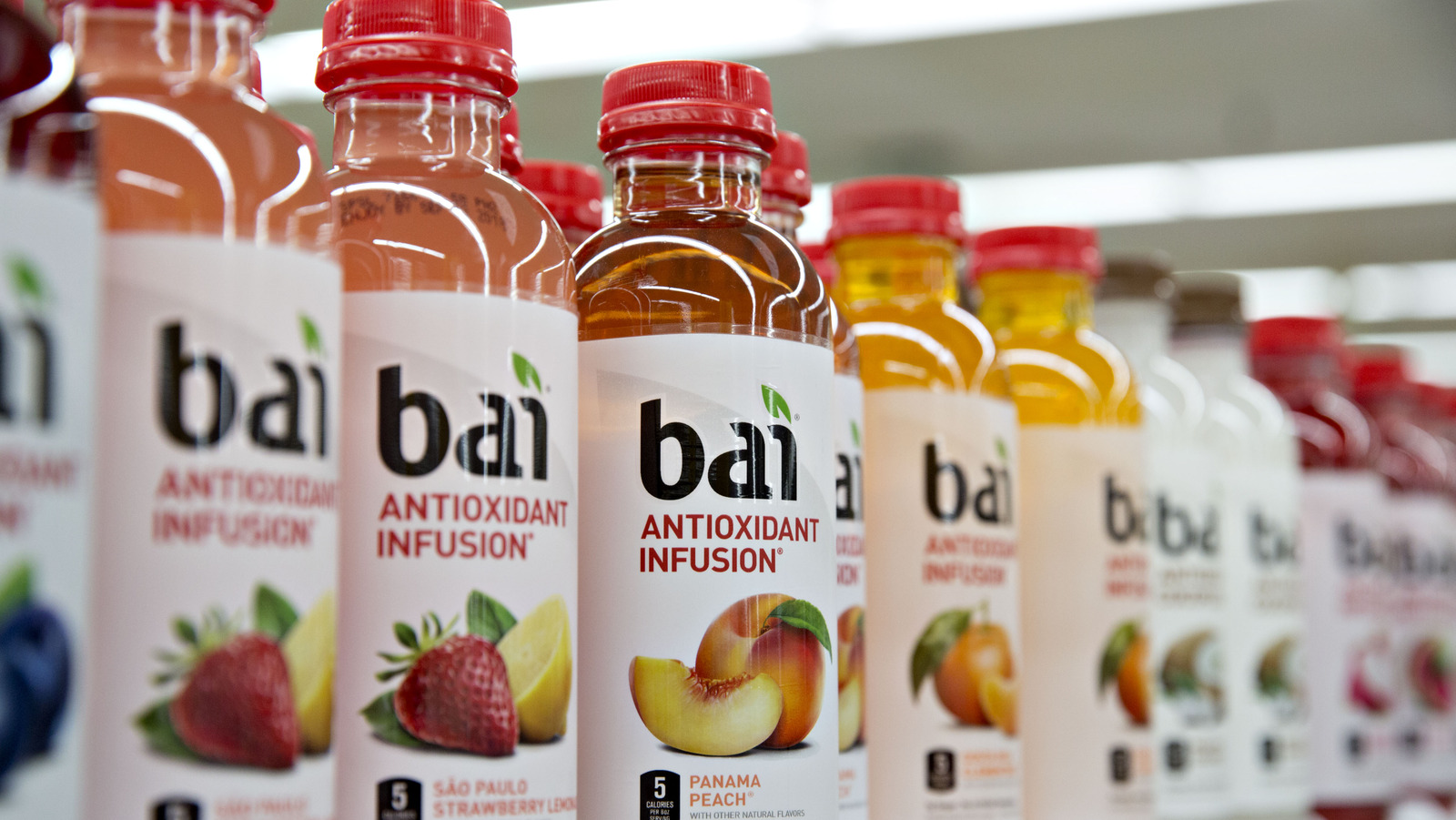
Replacement Considerations:
- Hydration Strategy: While Bai can replace sugary drinks like soda, it shouldn’t entirely substitute plain water or other nutrient-dense options.
- Personal Preferences: Taste preferences will vary, and some individuals might miss the mouthfeel of creamy beverages or other beloved drinks.
Evaluating Bai’s role involves acknowledging it as a viable substitute within specific contexts rather than a complete replacement.
Overall Assessment of Bai’s Health Benefits
The evaluation of Bai drinks reveals them as a worthwhile contender in the landscape of health-oriented beverages.

Final Thoughts on Bai:
- Low Calorie and Sugar: The drinks present a solid option for weight management.
- Natural Ingredients: The use of eritthritol and stevia further supports their health claims.
- Antioxidants: The introduction of coffee and tea extracts adds impressive credentials aimed at combating oxidative stress.
Balancing enjoyment with health is paramount, and Bai drinks appear well-equipped to meet those objectives.
FAQs
-
Are Bai drinks gluten-free?
Yes, Bai drinks are marketed as gluten-free, making them suitable for those with gluten intolerance. -
How much caffeine is in Bai drinks?
The caffeine content varies by flavor, generally ranging from 35 to 110 mg per 16-ounce serving. -
Are Bai drinks vegan?
Absolutely! Bai beverages do not contain any animal-derived ingredients, making them suitable for vegans. -
Do Bai drinks contain artificial sweeteners?
No, Bai utilizes natural sweeteners like erythritol and stevia, avoiding artificial additives. -
Can I drink Bai if I am trying to manage my sugar intake?
Yes, Bai drinks contain only 1-2 grams of sugar, making them an excellent choice for anyone monitoring their sugar levels.
Conclusion
Navigating the intricate landscape of dietary choices demands both knowledge and discernment, especially with options like Bai drinks that offer vibrant taste alongside a health-oriented profile. With their low-calorie and low-sugar attributes, combined with the richness of antioxidants from natural ingredients, Bai beverages certainly mark a shift in what we consider healthy hydration options. While they hold a place within a balanced diet, moderation remains key. Bai can complement efforts toward healthiness while providing that enjoyable flavor twist many seek. In essence, Bai drinks stand as a robust ally for those on the path to better hydration and overall well-being.
SEO
SEO Title: Is Bai Healthy? Discover 7 Essential Insights
SEO Meta Description: Is Bai healthy? Explore the 7 key facts about Bai drinks as a flavorful alternative for health-conscious consumers.
SEO Meta Keywords: Bai drinks, health benefits of Bai, Bai nutritional profile, low-calorie beverages, antioxidant drinks, sugar-free beverages, Bai vs traditional drinks, hydration drinks.
Để lại một bình luận